Updated Saturay 9/27
After launching two new iPhones and a new mobile operating system, iOS 8, last week, Apple had a rough few days. Sure, it sold a record 10 million of its new iPhone 6 and iPhone 6 Plus models over the weekend, setting them up to be its most successful phones ever. But no company can escape the headaches that come with almost every new launch, and Apple had three problems marring an otherwise spectacular introduction.
First, iOS 8, Apple’s new mobile operating system, inexplicably launched late last week without promised apps that used a health and fitness feature called HealthKit. Then, early this week, reports flew around social media and tech blogs showing the iPhone 6 Plus, the big 5.5-in. granddaddy of the two iPhone 6 models, was easy to bend — some people claimed the phone bent when sitting in their pockets for extended periods, others bent the phones on purpose to prove it was possible, and everybody loved calling the whole thing “bendgazi.” Finally, Apple rolled out an iOS 8 update Wednesday intended to fix that HealthKit problem and other minor issues, only to quickly pull it after users complained the update had caused their iPhones to lose the ability to make phone calls.
See the World Await and Celebrate Apple's iPhone 6

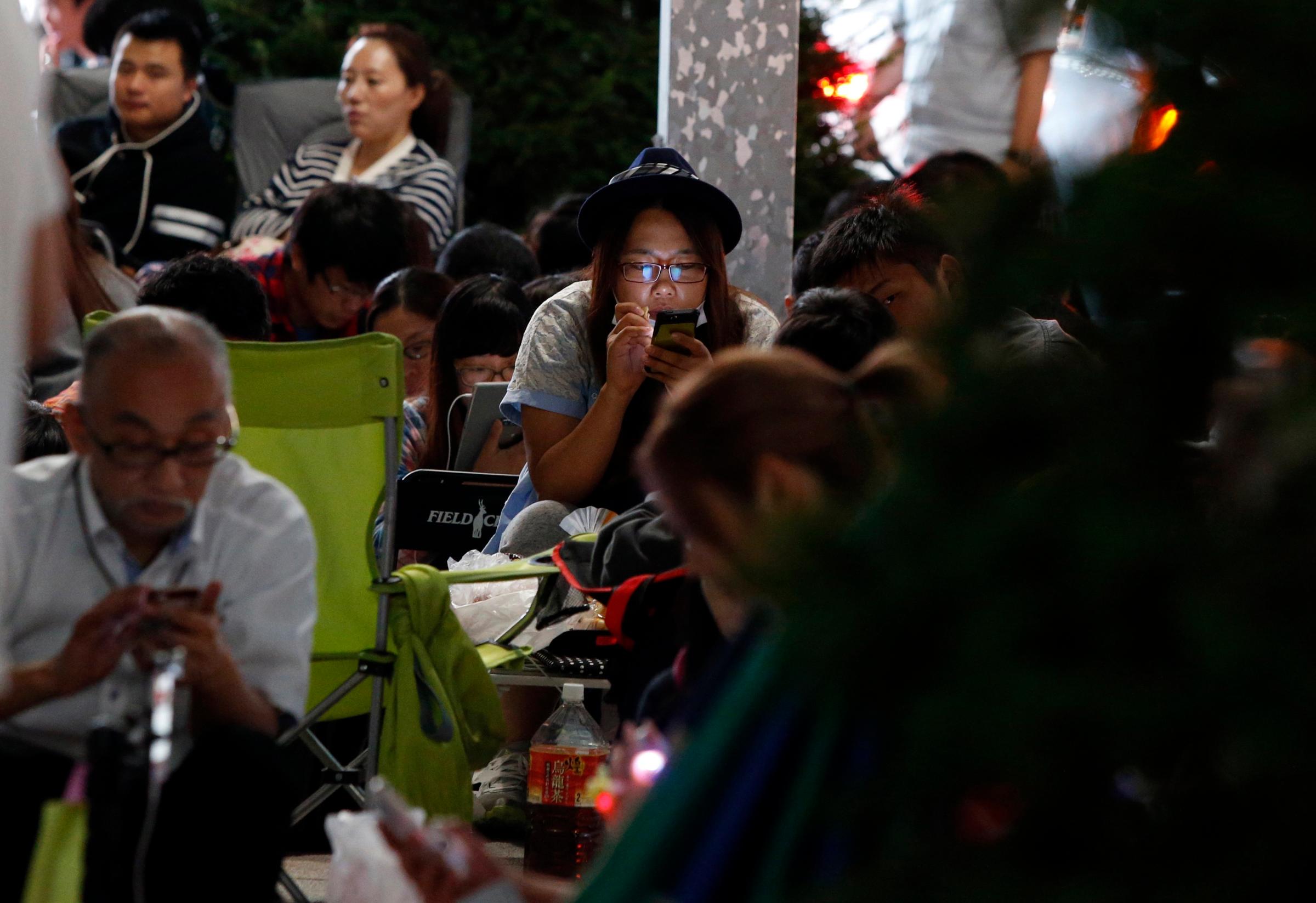



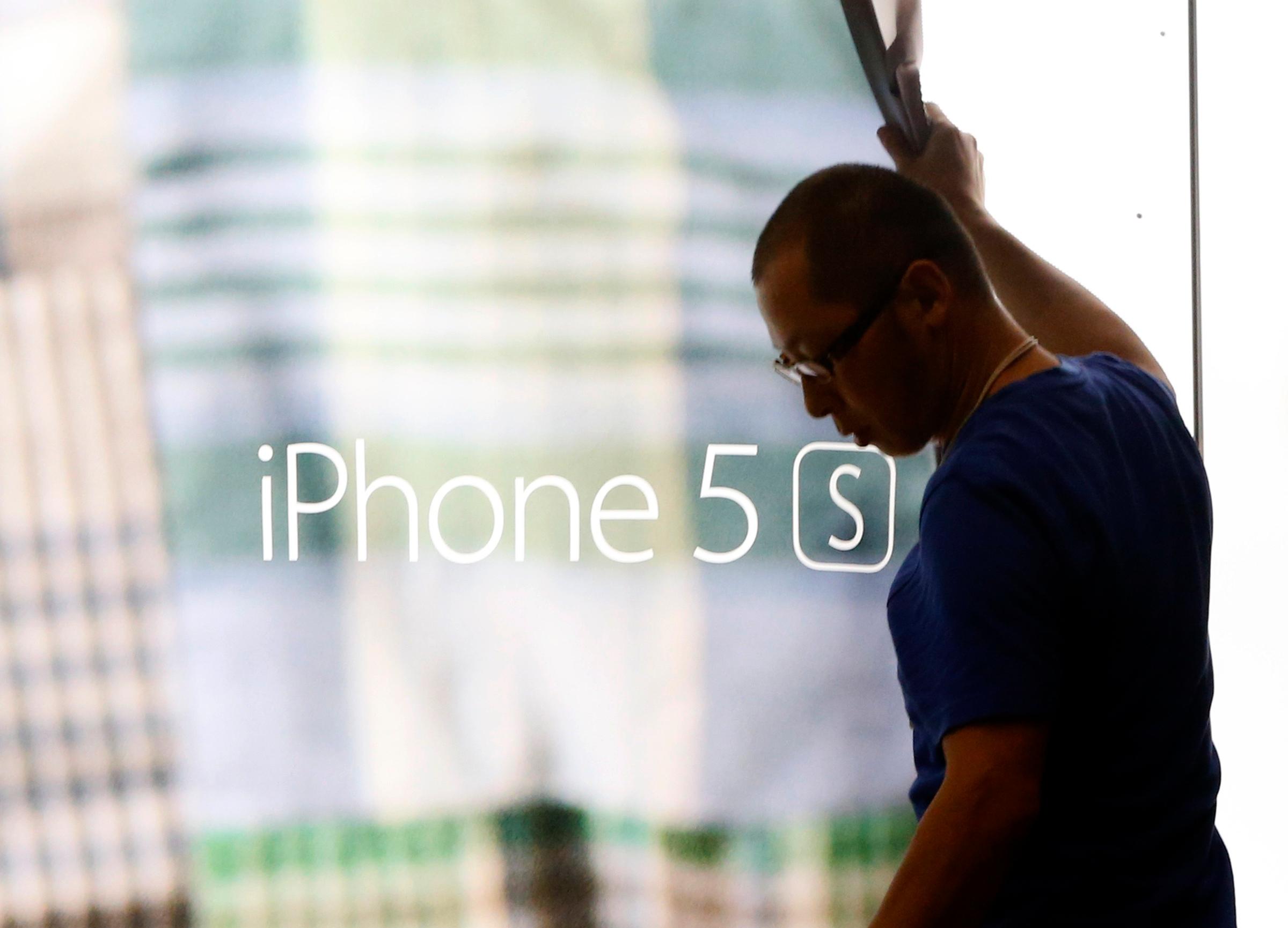
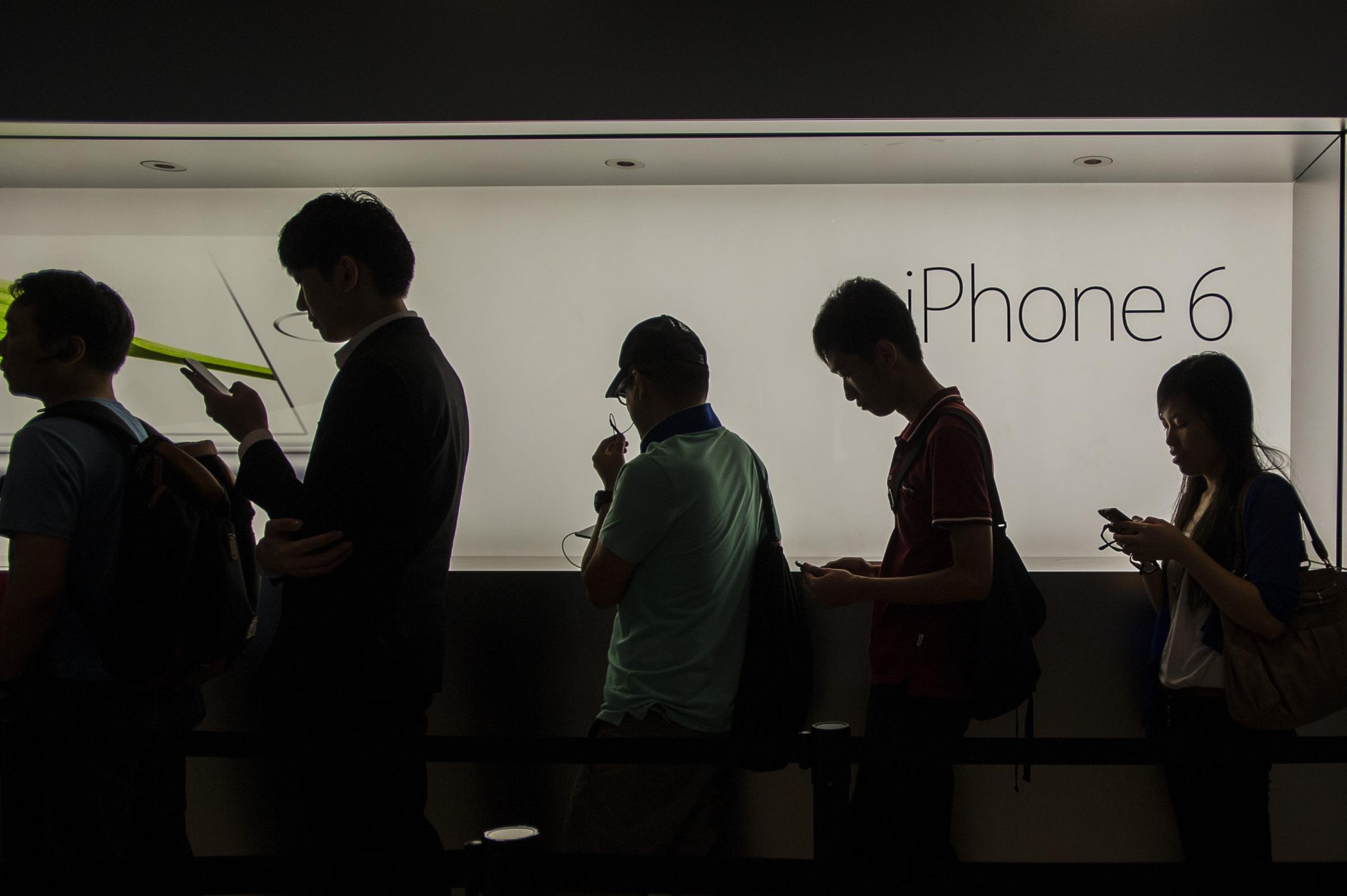

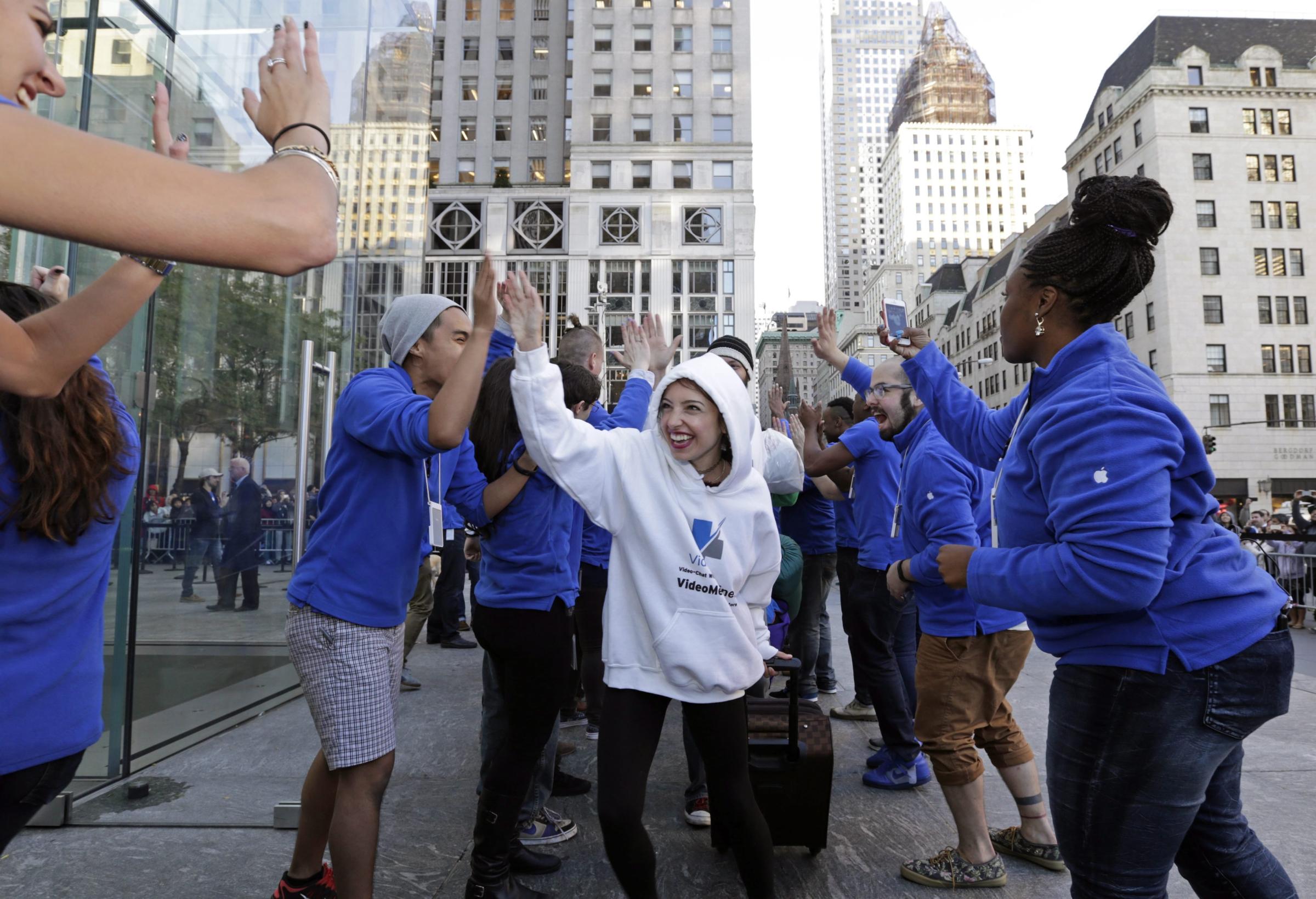
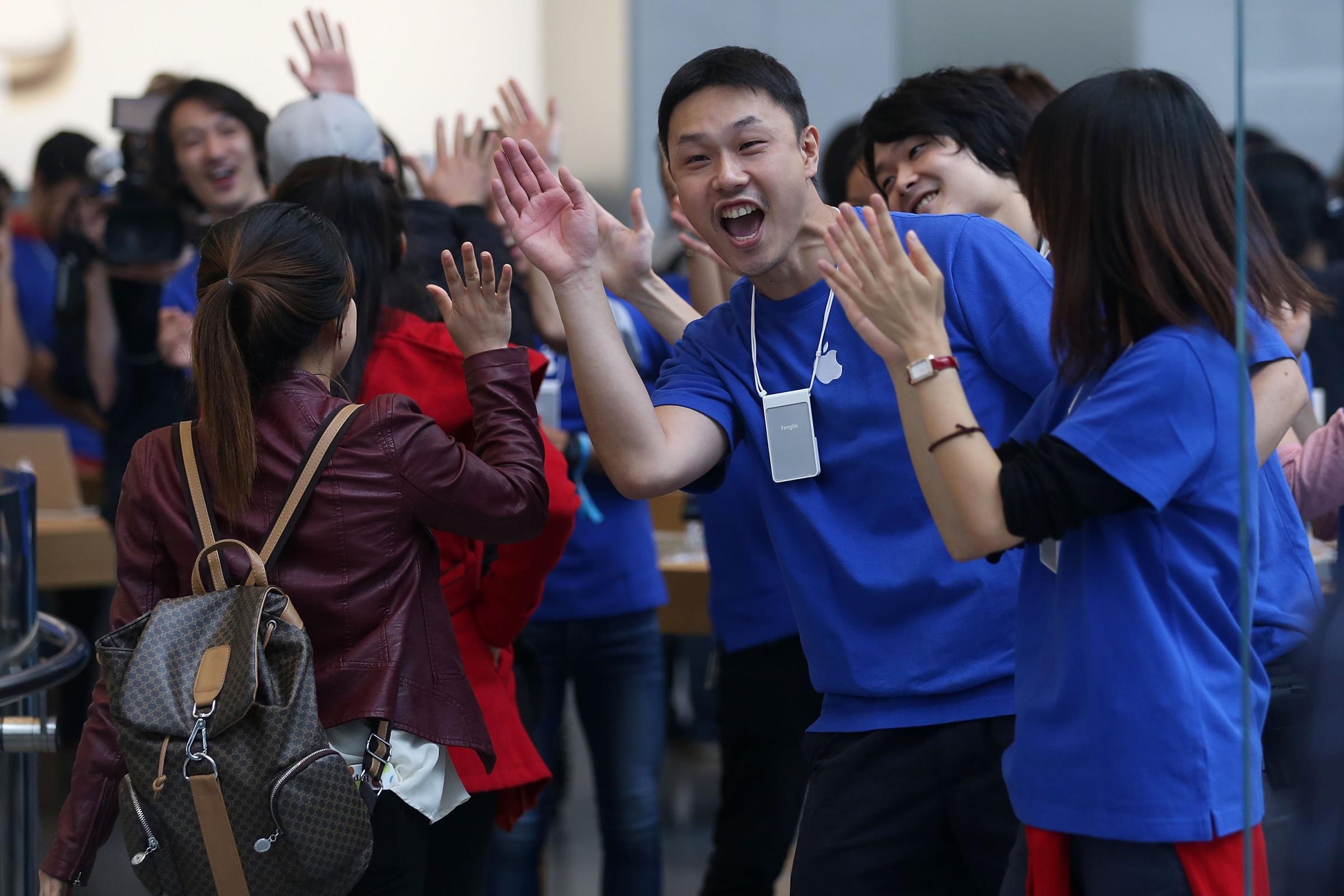
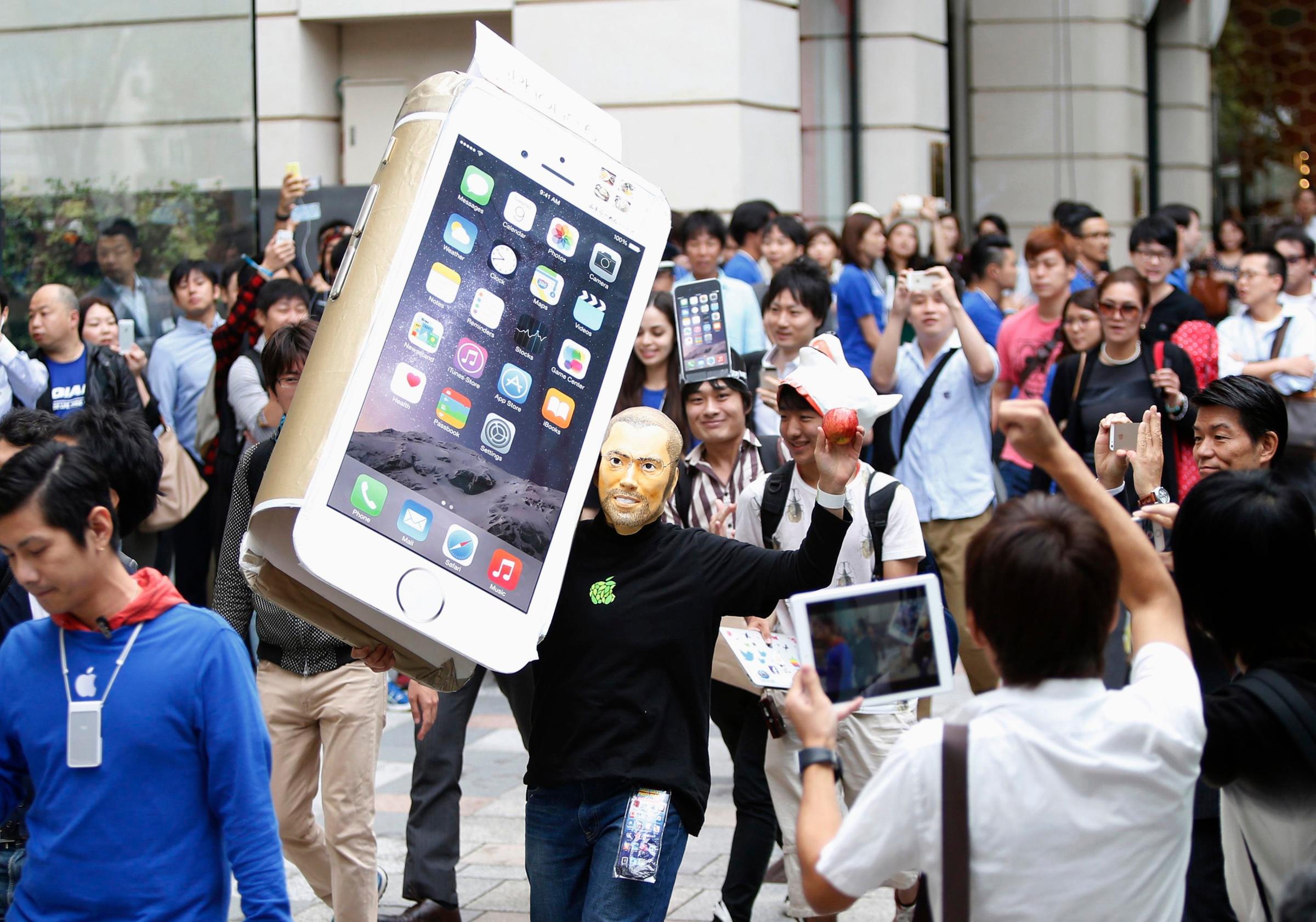

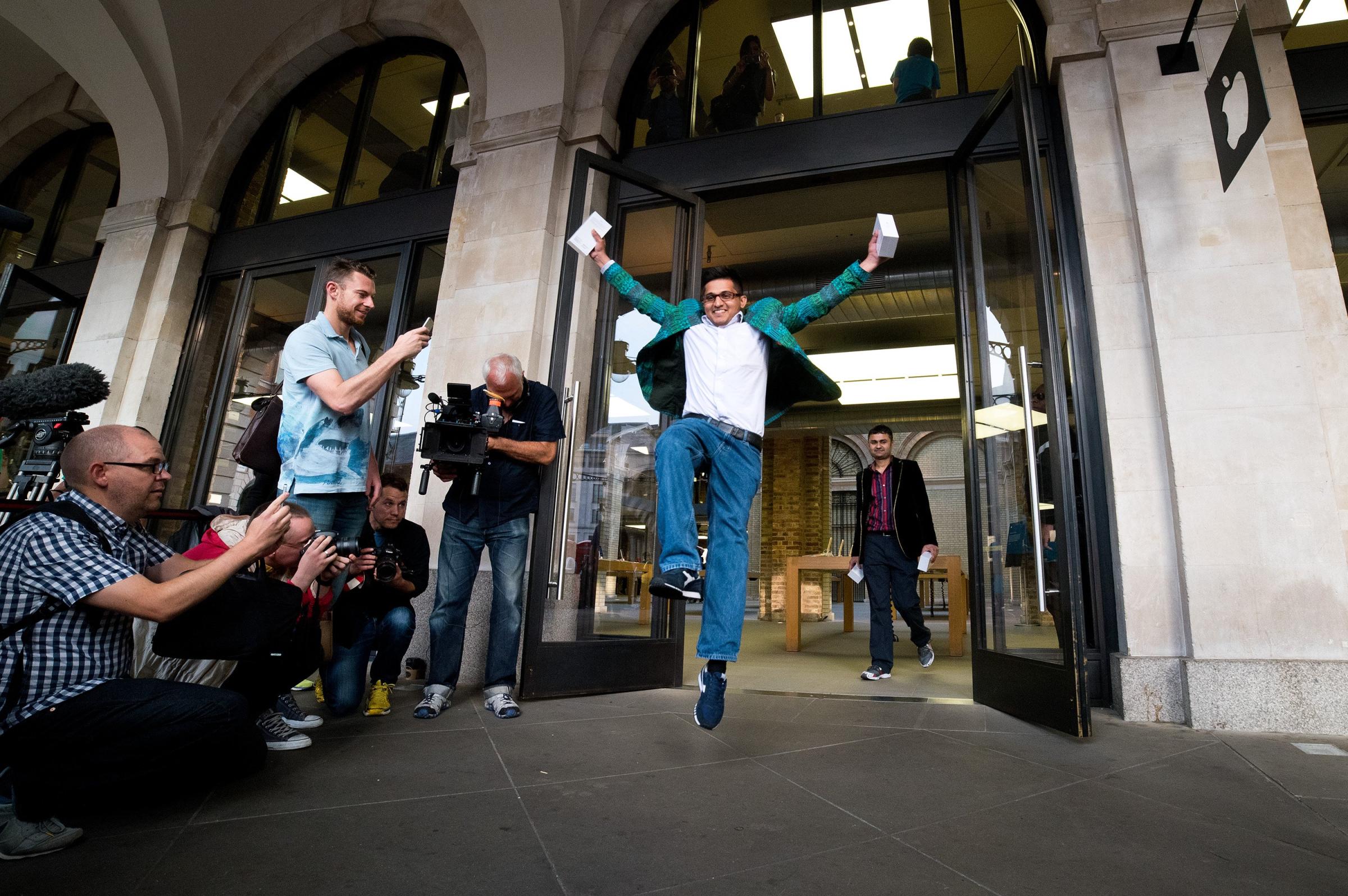
“We are actively investigating these reports and will provide information as quickly as we can,” an Apple spokesperson told several tech blogs in a rare public statement about the iOS 8 update problems. Several days later, Apple rolled out iOS 8.0.2, which took care of the bugs iOS 8.0.1 was supposed to fix, plus patched up the brand new bugs that update introduced. Apple later said only about 40,000 of the millions of iPhones out there in the world were affected by the iOS 8 update problems. Still, the company apologized “for the great inconvenience experienced by users” related to the issue.
While initially mum on the bending issue, late this week Apple said only a small handful of iPhone users formally complained about bent devices. Still, in a rare move, it decided to lift the veil on on its testing process, showing the world the rigorous quality control testing it conducts on every new device. That’s the latest sign the typically tight-lipped Apple is opening up: Apple also recently directly addressed an iCloud security flaw that led to the exposure of celebrities’ nude photos. Those minor moves toward transparency show an Apple that’s taking a different tack from years prior — back in 2010, late CEO Steve Jobs infamously made a nonapology apology for an iPhone 4 problem that prevented the device from making calls when it was held a certain way. While Apple acknowledged the issue and sent customers a special “bumper” case to fix it, Jobs still said the problem had been “blown so out of proportion it’s incredible.” That’s not the kind of language we’re hearing from the company under Cook, who also issued a public apology after the company replaced the widely-liked Google Maps app with its own Apple Maps back in 2012, a move met with much scorn from users and tech writers.
Even still , Apple investors initially balked at the news of the update problems and bending issues, sending the company’s stock dipping below $98 by Thursday’s closing bell. That’s a decent little dip for the world’s most cash-rich company, but there isn’t much reason to fret. Apple is still selling its new iPhones hand over fist, and it appears poised to sell its upcoming Apple Watch hand over wrist in just a few months. The company may have a little headache now, but it’s got plenty of aspirin in the medicine cabinet. Indeed, by the end of the day Friday, it seemed Wall Street got over it: Apple climbed nearly 3% on the week’s last day of trading action, ending back above $100.
More Must-Reads from TIME
- Cybersecurity Experts Are Sounding the Alarm on DOGE
- Meet the 2025 Women of the Year
- The Harsh Truth About Disability Inclusion
- Why Do More Young Adults Have Cancer?
- Colman Domingo Leads With Radical Love
- How to Get Better at Doing Things Alone
- Michelle Zauner Stares Down the Darkness
Contact us at letters@time.com